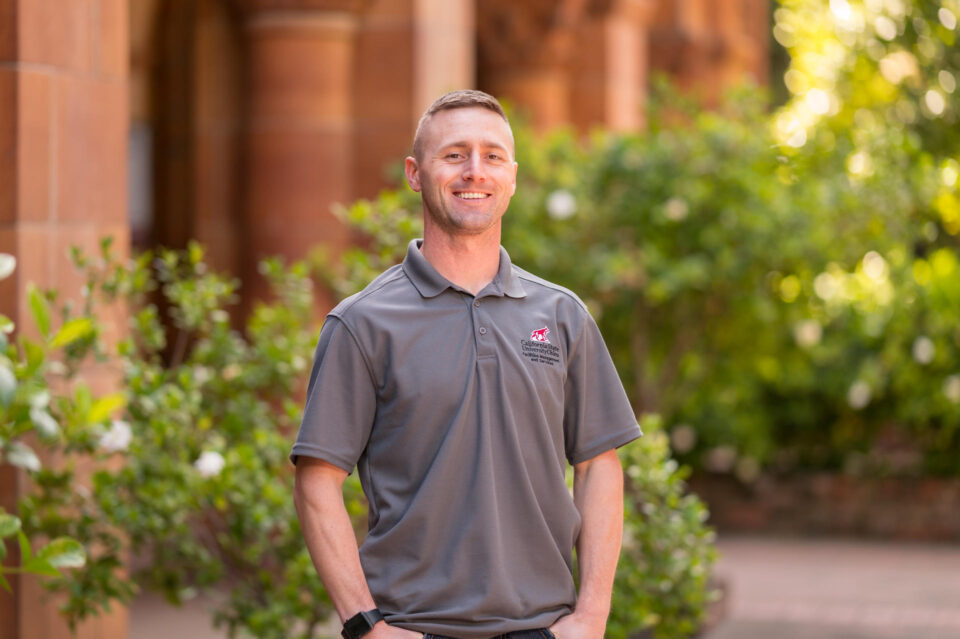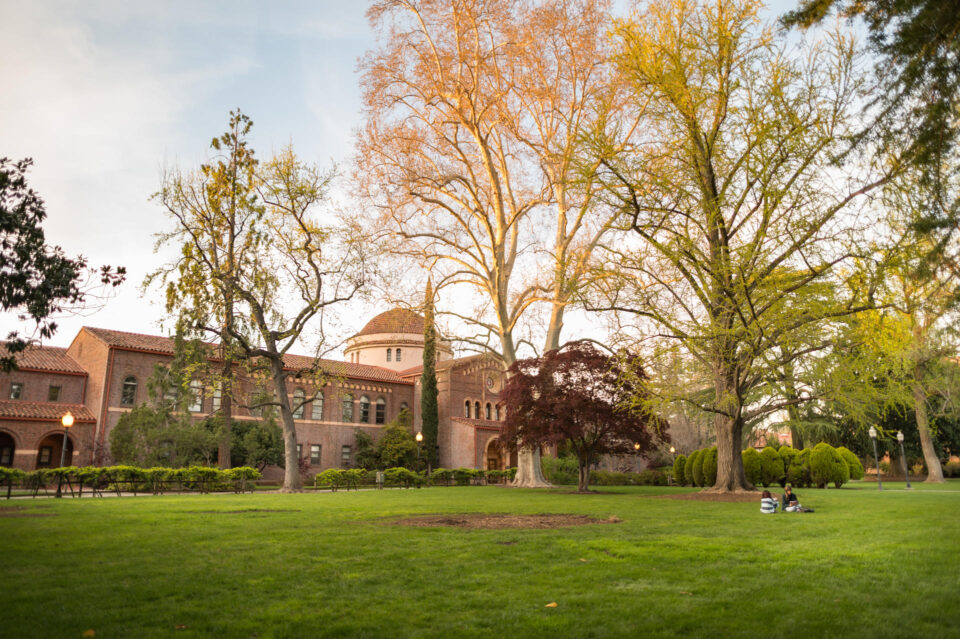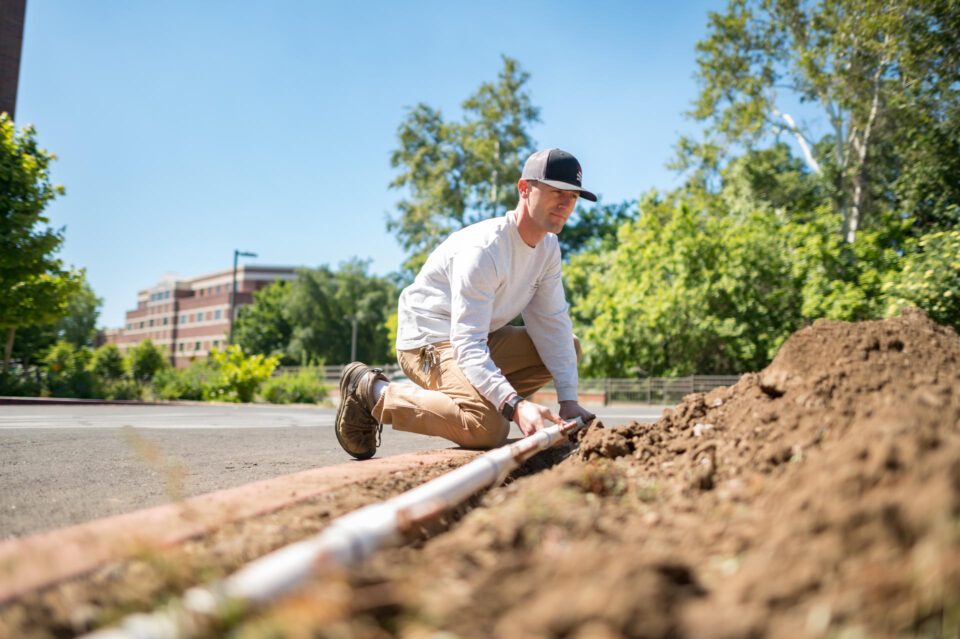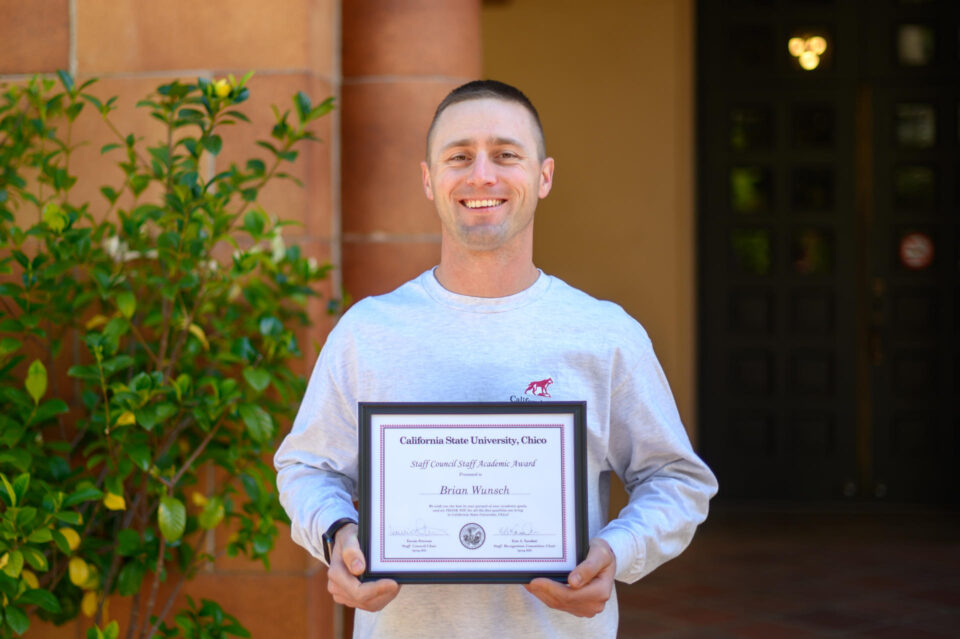The high-tech landscape: How expanded Wi-Fi is keeping Chico State’s grounds watered and healthy
September 6, 2023

Out of crisis comes opportunity, or so they say. But in the midst of COVID-19 gloom, there weren’t too many bright spots on the horizon. Like colleges and universities around the world, California State University, Chico—fondly known as Chico State—was confronted with significant challenges of running a high-quality educational institution in a suddenly virtual environment. How best to enable unbroken communication channels to ensure classes and materials could be delivered remotely, if required?
One thing you need is good Wi-Fi. So Chico State applied for a grant to fund a large Wi-Fi expansion project across campus. That grant application was successful, which meant improved connectivity for students, for faculty and staff, for service providers and for visitors.
And it meant Wi-Fi access for smart irrigation controllers as well.
Irrigation might not be the first thing that comes to mind when it comes to the benefits of improved wireless networking, but in reality, it can make a huge difference. Internet-enabled irrigation controllers can adjust their watering schedules based on weather data, as well as the needs of the plants they are watering. The calculations are based on the science of evapotranspiration, or ET, the process by which water is transferred from the land to the atmosphere by evaporation from the soil and other surfaces and by transpiration from plants. Access to this vital data is enabled by Chico State’s Wi-Fi network. Just as important, those wirelessly networked controllers can be accessed and adjusted remotely, which creates critical efficiencies for those entrusted with the upkeep of the University grounds.
At Chico State, the person responsible for ensuring the landscape, plants and trees are watered and healthy is Irrigation Specialist Brian Wunsch.

“It was always my intention to introduce Internet-enabled weather and ET-based controllers across the board at Chico State,” Wunsch said. “When the grant was allocated, that gave me the opportunity to install these new controllers. So it was kind of a domino effect. The timing was just right.
“There’s no question that these smart systems save hours weekly, week after week. It just adds up, because you’re talking about a number of different people needing to do irrigation repairs or checks. Being able to run valves from a remote location, whether that’s using the handheld remote or a cell phone or tablet; there’s just no question. It’s been a huge tool for us in saving labor costs.”
It also saves an incredible amount of water.
Thanks to automatic high flow and mainline break shutoffs, precipitation event shutoffs, daily modulation of runtimes corresponding with ET, and remote on/off capability when servicing the system, Chico State is able to save a conservative estimate of 4-5 million gallons of water annually.
***
Chico State is home to almost 14,000 students and 2,000 faculty and staff. The Northern California University’s history stretches back to 1887, making it the second-oldest CSU campus and the sixth-oldest public higher education institution in California. What was originally eight contiguous acres of cherry orchard nearly 140 years ago has grown to a 132-acre, multiple-college campus, as well as an 800-acre University Farm and more than 7,835 acres of ecological reserve.
Trees and the natural landscape have always been important at Chico State, from its cherry orchard origins onwards. In 1982, the Chico State campus was officially designated an arboretum, and the waters of Big Chico Creek run right through the middle of campus. Maintaining this natural beauty has long been a priority, as well, from waterwise landscaping and a focus on native plants and xeriscaping where possible, to utilizing underground cisterns and bioswales.
The campus irrigation water needs are primarily met through an onsite production well, while the remainder is served by the municipal water service, California Water Service – more commonly known as Cal Water.
Sustainability and care for the natural environment continue to be of central importance at Chico State—in fact, “resilient and sustainable systems” is one of the University’s three strategic priorities. Communication and collaboration are key to these initiatives, Wunsch says.
“The University has a water subcommittee, which is a division of the larger campus sustainability committee,” he explains. “A handful of people within and outside of the campus sit on this committee, including myself, and two Cal Water representatives. This is mainly where we share projects, news, and ideas with each other.”
Chico State is also home to the Center for Water and the Environment (CWE), where research on water, energy, and the environment is conducted.
It’s obvious that using water efficiently and intelligently is pretty important at Chico State. And as part of maintaining its captivating educational backdrop, irrigation has been crucial to this place for a long time.

***
Wunsch says there are almost 70 controllers that automate the watering schedule across Chico State, all of which are now Internet-connected, except for a few battery-powered controllers.
“They make my job a heck of a lot easier,” he says. He works alongside a relatively small team of grounds and gardening staff, so ensuring his time and theirs is utilized efficiently is crucial.
“With conventional controllers, we would typically make budget and runtime adjustments monthly – and that’s only if everyone was on their game,” Wunsch says. “Now our smart controllers are making those adjustments every single day. It’s a huge, huge difference.
“Previously, if we had a precipitation event, we’d have to run around and physically shut down all the controllers on campus. Then, once the soil started to dry up, we would turn them back on. It takes about an hour to visit every controller on campus. That also means there used to be a lot of irrigation happening when it shouldn’t have been happening, just because of that human element of needing to go and manually make those changes.
“So the labor saving that the smart controllers provide is incredibly important, particularly with the small team that we have. It’s a huge benefit.”
21 of the 69 smart controllers used by Chico State come from Carlsbad-based, irrigation industry leader Calsense, a company with a well-deserved reputation for outstanding service and technical innovation. At Chico State, Calsense controllers are now specified for any new building development on campus, with 2 more coming on-line in the next 2 years.
Mike Alonzo is Manager of Grounds and Landscape at Chico State. He explains the rationale behind the University’s use of Calsense technology.
“We have been strategic with Calsense, installing Calsense controllers first for our large projects, along with prioritizing management of our sports turf with Calsense,” he says. “Currently, our 21 Calsense controllers help us manage at least 65% of our irrigated landscape.”
“Calsense’s products are a perfect fit for our campus,” Wunsch says. “They are engineered to last well into the future, and the company’s values mirror our own when it comes to resource conservation and sustainability.”

***
Like the rest of California, Chico State has been affected by water restrictions imposed due to the state’s prolonged drought conditions. Although the University’s use of its own well has minimized reliance on municipal water, Wunsch and his team were required to cut down their watering days while restrictions were in place.
“The advantage of having smart controllers on campus is that it makes it a lot easier to make sure we’re in alignment with those restrictions,” Wunsch says. “It just simplifies things. If we need to cut water days, there’s the reassurance that the plants will still get the right amount of water applied per week – because the controllers automatically adjust run times depending on the selected watering days we do have available.”
It helps to have a good relationship with your municipal water supplier, too. Wunsch is effusive about the Cal Water rebate program.
“For the smart controllers installed in areas served by Cal Water, they refunded those costs back to us,” he says. “They’re huge proponents of water conservation. They work with us hand-in-hand, and they’re always willing to try new things out with the University. We’ve been working with them on using smart (flow) meters to help monitor for any leaks or unusually large water usage. They’re definitely on our side when it comes to being a team and conserving water together.”
***
A typical day for Wunsch starts early. He arrives at work by 5 a.m., logging on to Calsense CCO – Command Center Online. He scrolls through the alerts from the previous three days, to see if there are any particular patterns emerging.
“I’ll go back to the homepage on CCO and click through all of our controller sites and check to see if there’s some non-controller water use occurring,” he says. “And if that piece of the pie chart is getting larger and larger, I can assume that there’s a small leak occurring. So I need to chase that down to stop it from growing further.
“That’s how my day is shaped: checking on those issues, making a to-do list, and going out in the field to take care of them. I spend a lot of time getting feedback from the grounds workers and the leads. They know their areas better than anyone on campus, so if something’s up, they can let me know: something looks a little wrong here, it’s a bit too wet or too dry, etc. And that feedback is a big, important part of my day.”
The University’s athletics team within the grounds department is responsible for the irrigation of the campus fields and sports facilities—where many of the University’s 13 Division II sports teams practice and compete.
“It’s a totally different beast,” Wunsch says. “They’re working with really restricted watering windows because of sports activities, mowing schedules – you name it. So I really try to stay out of their way as far as the watering scheduling goes. I act more as support for the athletics team when it comes to irrigation: making repairs, fielding any questions, and helping with the Calsense system as they need it.”
***
Wunsch says that he regularly accesses the Calsense system when he’s not onsite. It’s a no-brainer, given the 5 a.m. start.
“I clock in at 5, which means I’m off at 1:30 in the afternoon. So there’s still plenty of time for things to go wrong during daylight hours, let alone overnight, when basically all of our irrigation events are happening.
“Since I’ve been in this position, I’ve received a dozen or more of those emergency calls, whether it be just after I leave work or the middle of the night. And I can immediately grab my phone and sign into CCO, find the controller with an issue and see what’s going on. That’s invaluable: to be anywhere with an Internet connection to see what’s going on; shutting things down if I need to. If not, well, I head straight over to campus and deal with it there.”
***

Wunsch’s roots run deep in the North State. He was raised in Willows, California, about a 45-minute drive from the Chico State campus, he has always lived locally, and his family still lives nearby.
He graduated from his local community college in 2016 with a degree in Environmental Horticulture. At the same time, he ran his own landscaping business, which operated in the area for seven years.
“The day that I sold the business and handed over the keys to the buyers, I learned of an opening at Chico State as a grounds worker,” he says. “I joined Chico State as a 90-day emergency hire. Despite the fact that I was trying to get out of the landscape maintenance business, I thought I’d take the opportunity.
“That got extended; I interviewed for a permanent position to backfill a retiring grounds worker, and then a year later our irrigation specialist retired. He’d been here for 32 years, and I tried to soak up every bit of knowledge he shared with me before he left. My passion for water conservation had been growing, so I interviewed for that role, and that’s how I ended up doing what I do now.”
As a full-time employee at Chico State, Wunsch seized another opportunity, utilizing the California State University’s Fee Waiver program, which allows eligible employees to pursue degrees at reduced rates at any of the system’s 23 campuses.
“Shortly after I started working here at Chico State, I also started pursuing my Bachelor’s Degree in Plant and Soil Science, with a focus in land and soil resource management,” he said. “And I earned that this year.”
Maybe unsurprisingly, then, ongoing education around irrigation is central to Wunsch’s approach to his job.
“Educating the grounds team is important to me, and makes us a stronger team,” Wunsch says. “I use Calsense data to create charts and graphs that show evapotranspiration and precipitation trends and totals. I send these out monthly and have conversations with the team regarding plant water use and evapotranspiration.”
***
The story of smart irrigation at Chico State has been one of seizing opportunities when they arise, however unexpectedly. But maybe there’s a different way to look at it, Wunsch suggests.
“You can only recognize an opportunity if you’re open to it,” he says. “So it’s about having that sort of receptive mindset, to learn and adjust and improve all the time. That’s what we try to do, whether that’s through the use of technology like smart irrigation, or in any other way.”
At Chico State, the embrace of smart irrigation has resulted in substantial water savings and equally importantly, has significantly reduced labor requirements as well.
“Before the smart controllers were installed, I would typically have to pull a grounds worker away from whatever they were working on to assist with an irrigation check or repair,” Wunsch says. “On average, I estimate that 10 hours a week are being put to better use than walking back and forth between the field and controller, or having someone wait at the controller to cycle through stations.”
